Skin
Skincare or Makeup: Which Should You Prioritize for Healthy Skin?

The age-old question in the world of beauty: skincare or makeup? It’s a dilemma that many people face, especially when trying to figure out where to invest their time and money. Skincare is the foundation of healthy, glowing skin, while makeup helps you enhance your features. But should one take precedence over the other? In this comprehensive guide, we’ll explore the importance of both skincare and makeup, why skincare should often come first, and how the two can work together to help you achieve a radiant complexion.
Understanding Skincare: The Foundation of Beauty
Skincare refers to the practice of caring for your skin through various products and techniques. The goal is to keep your skin healthy, hydrated, and protected from external factors like pollution and UV rays. Good skincare helps to address concerns such as acne, dryness, aging, and uneven skin tone. It’s not just about aesthetics; it’s about maintaining the health of the largest organ of your body.
When people think of beauty, they often jump straight to makeup, but your skin’s health should be the first priority. Why? Makeup can only do so much. If you apply makeup on skin that is dry, irritated, or acne-prone, it may not look as good as you’d hope, and in some cases, it can even worsen skin issues.
Why Skincare Should Come Before Makeup
There’s no doubt that makeup enhances your appearance, but skincare creates the canvas. Think of it like painting: if the surface isn’t smooth, no amount of beautiful color can hide the flaws. Skincare prepares your skin, making it smooth, hydrated, and even-toned, allowing makeup to glide on and stay put throughout the day.
Prioritizing skincare over makeup leads to long-term benefits. While makeup is a temporary fix, skincare addresses the root of skin problems, helping you achieve a healthy, glowing complexion that lasts even when you’re not wearing makeup. Additionally, investing in skincare can reduce the need for heavy makeup, allowing you to embrace a more natural, glowing look.
The Essential Elements of a Skincare Routine
To build a strong foundation for your skin, it’s crucial to establish a consistent skincare routine. Here are the key steps:
Cleansing
The first step to any skincare routine is cleansing. This helps remove dirt, oil, and makeup that can clog your pores and lead to breakouts. Choose a gentle cleanser that suits your skin type—whether that’s oily, dry, or combination skin. Cleansing twice daily, morning and night, ensures your skin stays fresh and clean.
Toning
Toners help balance the skin’s pH and remove any leftover impurities after cleansing. A good toner can hydrate and soothe the skin, preparing it for the next steps in your skincare routine. Look for toners with calming ingredients like rose water, witch hazel, or chamomile, especially if you have sensitive skin.
Moisturizing
Moisturizer is essential, no matter your skin type. It hydrates the skin and locks in moisture, preventing dryness and irritation. For oily skin, opt for lightweight, oil-free moisturizers, while dry skin benefits from richer creams. This step is crucial for maintaining your skin’s natural barrier, which protects it from environmental damage.
Sunscreen
Sunscreen is arguably the most important part of any skincare routine. It protects your skin from the harmful effects of UV rays, which can lead to premature aging, dark spots, and even skin cancer. Dermatologists recommend using a broad-spectrum sunscreen with at least SPF 30 daily, even on cloudy days or indoors.
Addressing Specific Skin Concerns: Skincare for Every Issue
Whether you’re dealing with acne, hyperpigmentation, or aging, skincare can help tackle specific issues with targeted treatments. Here’s a look at how to approach these common skin concerns.
Acne-Prone Skin
For those battling acne, choosing non-comedogenic products that won’t clog your pores is crucial. Look for cleansers and treatments containing salicylic acid, benzoyl peroxide, or tea tree oil to help reduce breakouts. Moisturizing is still important for acne-prone skin—just opt for oil-free and lightweight formulations to keep skin balanced.
Hyperpigmentation and Dark Spots
Hyperpigmentation, often caused by sun damage or post-acne marks, can be addressed with products containing vitamin C, niacinamide, or retinoids. These ingredients help to lighten dark spots over time, promoting an even skin tone.
Aging Skin
As skin ages, it loses elasticity, leading to fine lines, wrinkles, and sagging. Anti-aging skincare routines often include products rich in antioxidants (like vitamin C and E), retinoids, and peptides. These ingredients work to boost collagen production, hydrate the skin, and reduce the appearance of wrinkles.
Skincare or Makeup: Finding the Right Balance
While skincare should come first, makeup can complement a healthy routine. In fact, the two can work hand-in-hand to enhance your skin’s appearance without overloading it. Here’s how to strike the right balance between skincare and makeup:
Primer as a Bridge Between Skincare and Makeup
Primers are the perfect product to use between your skincare routine and makeup application. A good primer can smooth out your skin, fill in pores, and create a protective barrier that helps your makeup last longer. Many primers now contain skincare ingredients like hyaluronic acid, which hydrates the skin while also giving you that flawless makeup base.
BB Creams and Tinted Moisturizers
For those who prefer a lighter look, BB creams and tinted moisturizers offer the best of both worlds. These products combine hydration with light coverage, helping to even out your skin tone without the heaviness of full-coverage foundation. Plus, many BB creams come with added SPF, giving you an extra layer of sun protection.
Focus on Skin, Not Coverage
Rather than using makeup to cover flaws, focus on improving your skin’s condition through a consistent skincare routine. When your skin is healthy and glowing, you may find that you need less makeup. Many beauty experts recommend going makeup-free a few days a week to let your skin breathe, which can prevent congestion and breakouts.
Common Skincare Myths Debunked
In the ever-evolving world of skincare, myths abound. Let’s clear up some of the most common misconceptions about skincare and makeup.
Myth 1: You Only Need Sunscreen on Sunny Days
This is one of the most dangerous myths in skincare. Harmful UV rays can penetrate through clouds and windows, meaning your skin is exposed to sun damage even on overcast days or indoors. Always apply sunscreen as the final step in your skincare routine.
Myth 2: Oily Skin Doesn’t Need Moisturizer
People with oily skin often think that moisturizing will make their skin oilier, but that’s not the case. When you skip moisturizing, your skin may actually produce more oil to compensate for the dryness. The key is to choose a lightweight, oil-free moisturizer that hydrates without clogging pores.
Myth 3: Makeup Causes Acne
While heavy makeup can contribute to clogged pores, it’s often not the makeup itself but improper removal that causes breakouts. Always cleanse thoroughly before bed to remove all traces of makeup and prevent bacteria buildup.
How to Build a Skincare Routine That Works for You
Creating a skincare routine that suits your skin type and concerns is essential. Here are some tips for building a routine tailored to your needs:
- Know Your Skin Type: Is your skin oily, dry, sensitive, or combination? Understanding your skin type helps you select the right products.
- Start Simple: If you’re new to skincare, don’t overwhelm yourself with too many products. Start with the basics—cleanser, moisturizer, and sunscreen—and gradually introduce treatments for specific concerns.
- Patch Test New Products: Always patch test new skincare products before incorporating them into your routine. This helps prevent allergic reactions or irritation.
- Stay Consistent: Skincare is a long-term commitment. Stick with your routine for at least six to eight weeks to see noticeable results.
- Adjust Seasonally: Your skincare needs may change with the seasons. In the summer, you might need a lighter moisturizer, while winter may call for more hydrating and nourishing products.
The Future of Skincare: What to Expect
The beauty industry is constantly evolving, with new skincare trends and products emerging every year. What does the future hold for skincare?
Personalized Skincare
As technology advances, personalized skincare is becoming more accessible. Skincare brands are now using AI to analyze individual skin concerns and create custom formulations based on specific needs. In the future, we may see even more tailored skincare solutions, making it easier to address skin issues effectively.
Sustainability in Skincare
Consumers are becoming more conscious of the environmental impact of their skincare products. Sustainable packaging, clean beauty, and ethically sourced ingredients are gaining popularity. Many brands are shifting toward eco-friendly practices, and this trend is expected to continue growing.
Skinimalism
“Less is more” is the mantra behind the skinimalism trend. Rather than using dozens of products, skinimalism focuses on simplifying routines and letting your natural skin shine. This approach emphasizes multi-purpose products and promotes embracing your skin’s natural texture, flaws and all.
Conclusion: Skincare or Makeup? Why Not Both?
At the end of the day, skincare and makeup each have their place in your beauty routine. While skincare should always come first to maintain healthy, glowing skin, makeup allows you to express yourself and enhance your natural beauty. By prioritizing skincare, you create a better canvas for your makeup, ensuring it looks flawless and lasts longer.
The key is balance. Invest in good skincare, but don’t be afraid to experiment with makeup. After all, the two can complement each other, helping you feel confident and beautiful, whether you’re going for a natural look or something more glamorous.
FAQs
How important is skincare compared to makeup?
- Skincare is essential because it keeps your skin healthy and glowing, whereas makeup enhances your appearance temporarily.
Can I skip skincare if I wear makeup every day?
- No, skipping skincare can lead to issues like breakouts, dryness, and uneven skin tone, which makeup may only temporarily cover.
Is sunscreen necessary even if I don’t go outside much?
- Yes, sunscreen protects your skin from harmful UV rays, which can still penetrate through windows indoors.
How do I start a skincare routine?
- Begin with the basics: cleanser, moisturizer, and sunscreen. Once you’re consistent with these, introduce treatments for specific concerns.
Can makeup damage my skin?
- Makeup can contribute to clogged pores if not removed properly, but when applied and removed correctly, it won’t necessarily harm your skin.
What is skinimalism?
- Skinimalism is the trend of simplifying your skincare routine by using fewer products and embracing your natural skin’s texture.
Skin
Can Dietary Choices Influence Skin Pigmentation?
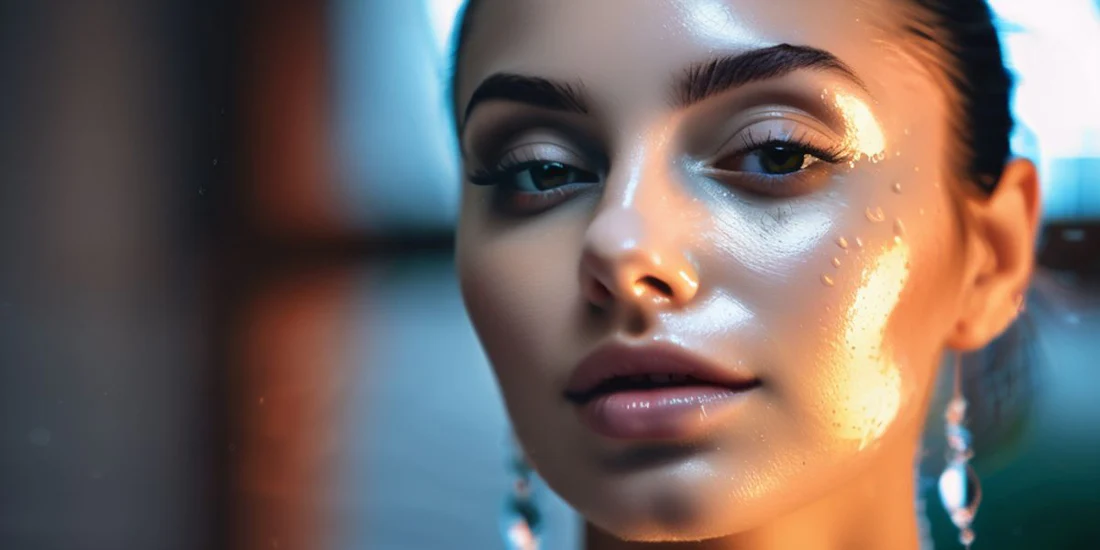
The adage “you are what you eat” holds a surprising veracity when considering the vitality and hue of your skin. While factors like heredity, lifestyle, and skincare regimens undeniably shape your dermal health, the food you consume wields its unique influence. Certain edibles can accentuate or subtly shift your natural complexion, lending it a luminous radiance or, conversely, prompting discoloration. But to what extent can nutrition modify skin pigmentation? Let’s delve into the scientific intricacies of this captivating connection.
Carotenoids: Nature’s Pigment Architects
Carotenoids, organic pigments residing in produce like carrots, spinach, sweet potatoes, and tomatoes, are responsible for their vivid yellow, orange, and red tones. Upon ingestion, these pigments are stored within the skin’s outermost layer, imbuing it with a sunlit, golden hue. This phenomenon, often termed “carotenoid-induced skin coloration,” exemplifies how diet directly interacts with dermal appearance.
Research substantiates that individuals who incorporate carotenoid-rich provisions into their meals often exhibit a healthier, more alluring skin tone. However, this effect is transient, dissipating once the consumption of such nutrient-dense foods declines.
Beta-Carotene and Its Surprising Effects
A prominent member of the carotenoid family, beta-carotene, is particularly adept at altering skin tone. Found in abundance in pumpkins, carrots, and yams, this compound can accumulate in the skin with excessive consumption, leading to a condition known as carotenemia. This temporary and benign state renders the skin a yellowish-orange tint, a striking testament to how dietary elements manifest visibly.

Hydration: The Unsung Hero of Skin Vitality
While water itself doesn’t transform pigmentation, it remains indispensable for preserving skin suppleness and averting dryness. Adequate hydration amplifies your skin’s natural brilliance, making it appear dewy and invigorated. In essence, water functions as a silent enhancer of your dermal luminosity.
Antioxidants: Guardians of Radiance
Foods imbued with antioxidants—like berries, green tea, and walnuts—fortify your skin by neutralizing harmful free radicals that damage cells and incite pigmentation irregularities. Regular consumption of these nutrient powerhouses fosters an even, radiant skin tone, underscoring the protective synergy between diet and dermal health.
Culinary Culprits Behind Discoloration
Not all dietary choices illuminate the skin. Certain foods detract from its vitality:
- Processed Sugars and Snacks: Excessive intake inflames the body, manifesting as redness, blemishes, and lackluster skin.
- High Sodium Content: Overindulgence in salt dehydrates the body, leaving the skin pallid and fatigued.
- Allergy-Inducing Foods: For some, food sensitivities can provoke rashes, discoloration, or uneven pigmentation.
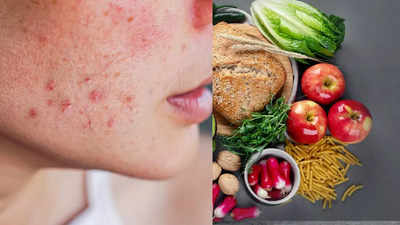
Cultural Perspectives on Diet and Skin Brilliance
Across global cultures, dietary customs play an integral role in nurturing skin radiance.
- South Asia: Turmeric, revered for its anti-inflammatory prowess, is a culinary cornerstone for enhancing skin clarity.
- East Asia: Green tea is cherished for fostering an ethereal, even-toned complexion.
- Mediterranean Region: Olive oil and nuts, staples of this diet, are lauded for promoting glowing, youthful skin.
Can Food Permanently Transform Skin Tone?
Despite its temporary influence, food cannot permanently alter melanin levels—the pigment dictating your natural skin color. Genetic coding and sun exposure govern melanin production, limiting the extent to which diet alone can modify pigmentation.

Culinary Tips for Radiant Skin
For a diet that enhances skin health and luminosity, consider these recommendations:
- Vibrant Produce: Infuse your meals with fruits and vegetables brimming with carotenoids and antioxidants.
- Omega-Rich Fish: Fatty fish like salmon deliver essential lipids that hydrate and soothe skin.
- Vitamin E Sources: Nuts and seeds shield skin cells from oxidative stress.
- Whole Grains: Support dermal repair with nutrient-dense grains.
Conclusion:
While dietary choices cannot override genetics, they play an undeniable role in amplifying your skin’s texture, tone, and radiance. By mindfully selecting nutrient-rich foods, you can embrace a complexion that reflects health and vitality. Remember, the nourishment on your plate is mirrored in your skin—so let it glow with wholesome intention.
Skin
Natural Face Moisturizers for Rosacea: Reviews & Buyers Guide
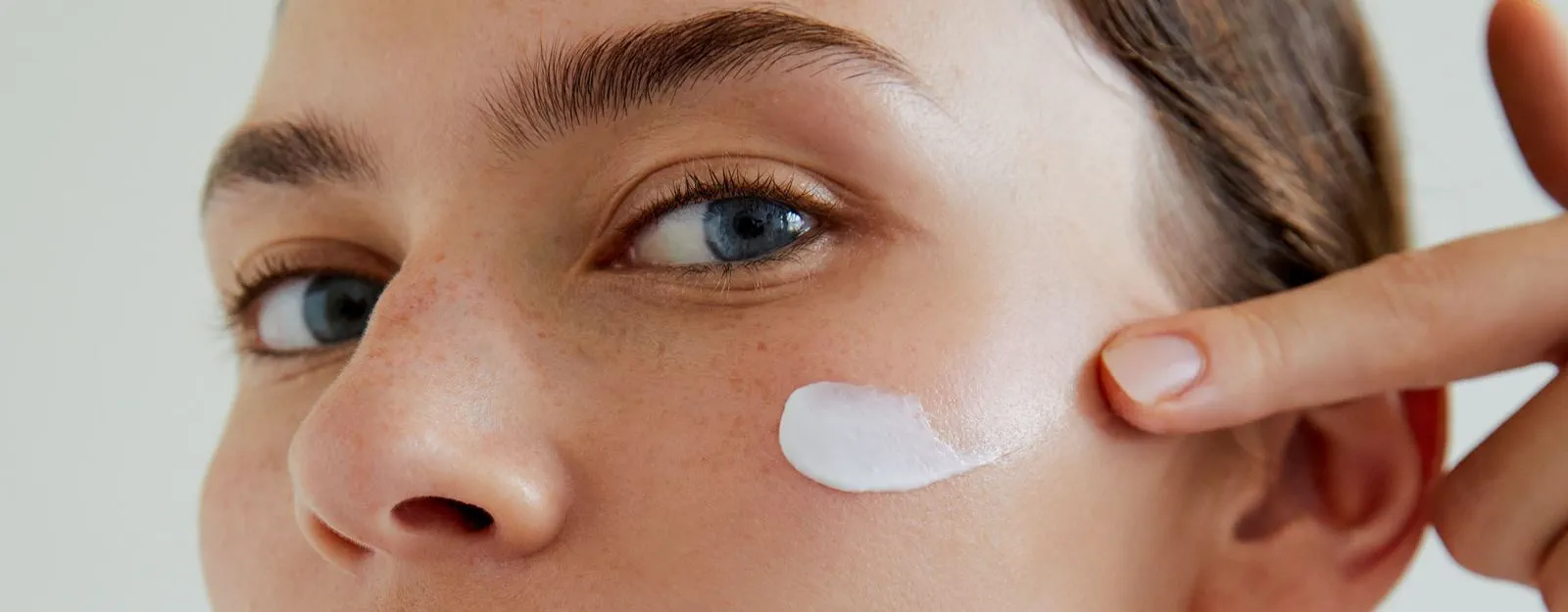
Table of Contents
Tips on Choosing the Right Moisturizer For Your Skin
Advantages of Using a Natural Face Moisturizer
1. These creams can help to reduce wrinkles:
2. Moisturizers are ideal for your skin:
3. The oils protect your skin:
4. The creams shrink enlarged pores:
5. The moisturizers down rashes:
What to Consider When Looking for Moisturizers for Rosacea
Best face wash and moisturizer for rosacea: Moisturizing your skin is a great way to protect your skin when treating rosacea. Some natural face moisturizers offer protection against environmental factors that exacerbate rosacea symptoms.
Before you settle on a moisturizer, read this review carefully, and always talk to your dermatologist.
- Avoid moisturizers that have too many fragrances. You should also avoid harsh cleansers, or any products that contain alcohol as they may contribute to rosacea outbreaks.
- Watch out for rosacea irritants found in different skin care products. They include alcohol, fragrance, Hazel, eucalyptus oil, peppermint and menthol. Other things you want to avoid include exfoliating agents, astringents and anything else that’s harsh for sensitive skin.
- Test any product on a peripheral area before you apply it on your skin. That will help you avoid any product that you react to and take note of the ingredients. Rosacea irritants vary from person to person, and your skin’s reaction should be your guide.
Mistakes to Avoid When Applying Moisturizers
Over-saturating your skin
Rubbing the skin too hard
Not allowing the cream to sink in
Forgetting the area under the eyes
Forgetting the neck area
What you Should Know Before Using Moisturizer for Rosacea
1. Premature wrinkles:
2. Your complexion may be dull and flaky:
3. Your layer of protection may become lost:
4. Your skin may become itchy:
Read the Label
Sensitive skin
Bland moisturizers
Best face wash and moisturizer for rosacea: These moisturizers are free from harsh ingredients that irritate the skin. You want to avoid anything that can trigger a flare-up. Avoid using moisturizers that have redundant components. The best products alleviate your skin’s dryness. Avoid moisturizers with alcohol, fragrances and related additives.
Avoid acne treatment products
Regardless of whether your rosacea is accompanied with pimples, it is not advisable to use moisturizers formulated for treating acne. They have ingredients such as benzoyl peroxide and salicylic acid that can dry your skin. Consult a dermatologist for the best way to treat acne while dealing with rosacea.
Calming ingredients
Try using moisturizers that have a calming effect on your skin to reduce the symptoms of rosacea. Chamomile, aloe and green tea are natural products that have a soothing effect. That will help to lessen the redness and inflammation you could be experiencing.
Sunscreen
Exposure to the sun is a known trigger for rosacea flare ups. Choose a moisturizer with an SPF 15 protection or higher or stay covered!
5 of the Best Moisturizers for Relieving Rosacea Reviewed
1. Miravage Facial Redness and Rosacea Relief Cream & Anti-Aging Moisturizer Serum
PROS
- You can wear it under your makeup
- Offers anti-aging benefits
- There is no greasy feeling
- Quickly absorbed into your skin
CONS
- Has a light scent that lingers
2. Era Organics Face Cream
PROS
- 60-day money back guarantee
- Non-greasy formula
- Has anti-aging properties
CONS
- Can be a bit expensive
3. Aveeno Eczema Therapy Moisturizing Cream
PROS
- Recommended by dermatologists
- Fast acting formula that hydrates and soothes
- Steroid and fragrance free
- Reasonably priced
- Great packaging for easy use
CONS
- Relatively thick formula feels heavy during application
4. HoneySkin Organics Aloe Vera Ultimate Face and Body Cream
PROS
- Organic product
- Doesn’t have fillers like mineral oils, parabens or water
- Light non-greasy formula
- No fragrance
CONS
- A little bit costly
- Few people are allergic to some ingredients
5. La Roche-Posay Soothing Moisturizer
PROS
- Fragrance free
- Reduces chances of skin dryness
- Easy to apply light texture
CONS
- It is relatively expensive
Conclusion
Dermatologists still have a long way to go about rosacea. Scientists are still learning what its real causes are and the best way to treat it. While there may be some genetic factors, the environment has a big contribution as well. There are different underlying factors causing rosacea. People battling it should make choices that eliminate the risk of outbreaks. Take note that your diet can trigger rosacea flare-ups. You want to avoid spicy foods, hot foods and drinks, and alcoholic beverages. But a moisturizer designed for those suffering from rosacea can help for some. As per the review, the Honeyskin Face & Body Cream stands out to me as the best moisturizer for rosacea here. Just remember that everyone’s skin reacts differently. Trial & error and speaking to your dermatologist are a couple of ways you can figure out which cream will work for your skin.
Skin
Neutrogena Nordic Berry Lip Balm
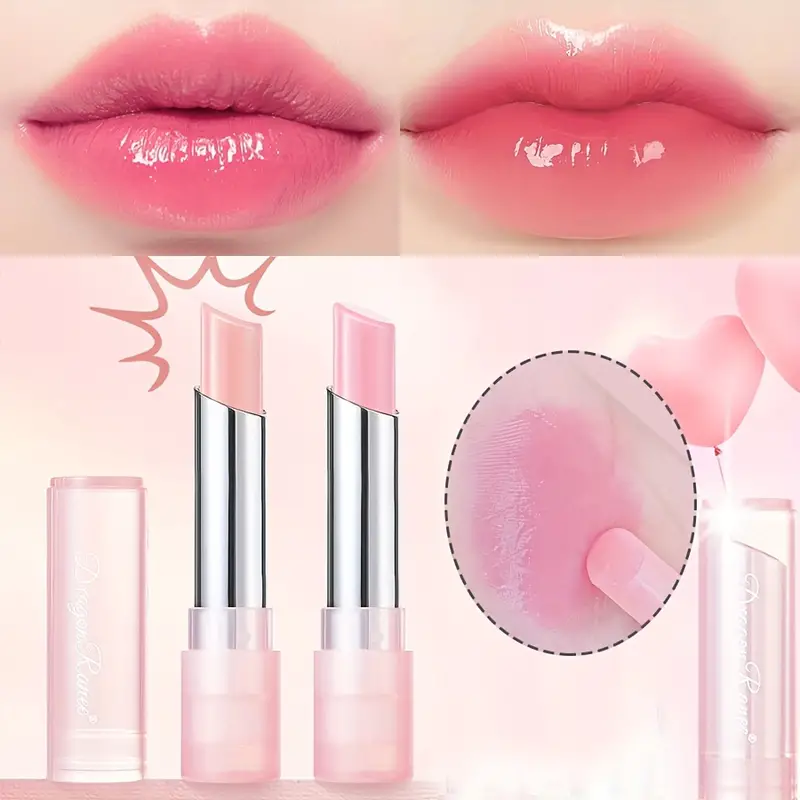
For those who prize meticulous lip care, the Neutrogena Nordic Berry Lip Balm emerges as a singular gem. Revered for its remarkable capacity to nurture, rejuvenate, and shield lips from the merciless grip of environmental extremities, this balm epitomizes the harmony of scientific innovation and nature’s bounty. Drawing inspiration from the nutrient-laden Nordic berry, it offers an exquisite confluence of advanced dermatological craftsmanship and organically sourced constituents. Below, we explore why this product claims a venerated spot among lip care connoisseurs globally.

Why Neutrogena Nordic Berry Lip Balm Stands Apart
This isn’t just another run-of-the-mill lip balm—it’s an intricate symphony of potent natural extracts and cutting-edge dermatological precision. Key attributes include:
- Infusion of Nordic Berry Extracts: These berries, abundant in antioxidants and vital nutrients, neutralize free radicals and infuse lips with deep hydration.
- Dermatologist-Endorsed Integrity: Clinically validated for its mildness, this balm suits even the most delicate lips.
- Enduring Moisturization: In contrast to the fleeting hydration offered by many alternatives, this balm ensures extended softness and resilience.
Dissecting the Key Ingredients
Nordic Berry Extract
As the core essence of this formulation, Nordic berry extract delivers unparalleled skin-enhancing benefits. Rich in vitamins C and E, it fortifies against environmental adversities while restoring suppleness.
Glycerin
Esteemed as a humectant, glycerin magnetizes moisture, safeguarding lips against aridity.
Panthenol (Pro-Vitamin B5)
Renowned for its reparative prowess, panthenol alleviates discomfort caused by cracked or inflamed lips, promoting swift recovery.
Shea Butter
This natural emollient cocoons the lips in a barrier of hydration, thwarting damage from icy winds and relentless heat.

Advantages of Using Neutrogena Nordic Berry Lip Balm
- Profound Moisture
This balm obliterates dryness, leaving lips velvety smooth. Its humectant-emollient blend delivers moisture unparalleled in longevity. - Defensive Antioxidants
Empowered by Nordic berry extract, the balm shields lips from oxidative stress, protecting against UV rays and pollution. - Extended Wear Time
Unlike its peers, this balm minimizes the need for frequent applications, offering sustained comfort throughout the day. - Luxurious Texture and Subtle Scent
Its silken consistency glides effortlessly across lips, while the faint aroma of Nordic berries provides a delightful sensory experience. - Adaptability Across Seasons
From frosty winters to sweltering summers, this balm is indispensable for year-round lip care.
Optimal Usage for Maximum Benefit
To harness the full potential of Neutrogena Nordic Berry Lip Balm, consider the following regimen:
- Gentle Exfoliation: Slough away dead skin cells with a mild lip scrub.
- Generous Application: Evenly coat your lips for comprehensive hydration.
- Reapplication Protocol: While its longevity is noteworthy, reapply after meals or exposure to severe conditions.
- Pairing with Lip Masks: For intense care, combine it with an overnight lip treatment.

A Comparative Glance
Positioned ahead of its competitors, Neutrogena Nordic Berry Lip Balm prioritizes the root causes of lip distress. Unlike generic alternatives offering superficial relief, this balm provides enduring solutions through its innovative blend of natural antioxidants and hydrating agents.
What Distinguishes It:
- Pure Ingredients: Free from irritants like parabens and synthetic fragrances.
- Expert Recommendations: Favored by dermatologists for its hypoallergenic attributes.
- Affordable Luxury: Top-tier efficacy without an exorbitant price.
Dermatological Advocacy
Esteemed by skin experts, Neutrogena Nordic Berry Lip Balm consistently proves its mettle. Its hypoallergenic composition and reparative properties make it suitable for all age groups, including children, ensuring lips remain protected and resilient.
The Ideal Candidate for This Balm
This balm caters to a wide audience:
- Chronic Dryness: An elixir for persistently parched lips.
- Extreme Climates: A fortress against severe cold, wind, and UV exposure.
- Sensitive Individuals: Free from harsh chemicals, ensuring compatibility with delicate skin.
Glowing Testimonials
Enthusiastic users worldwide laud this balm’s transformative effects:
- “No lip balm has ever worked as effectively! My lips feel rejuvenated all day.” – Sarah M.
- “The fruity scent and long-lasting hydration make this a staple for me.” – James K.
- “Winters used to wreak havoc on my lips—this balm changed everything.” – Emily R.
Accessibility
Conveniently available, Neutrogena Nordic Berry Lip Balm can be procured through:
- The official Neutrogena website.
- Major platforms like Amazon.
- Retail giants such as Walmart and Target.
- Pharmacies including CVS and Walgreens.
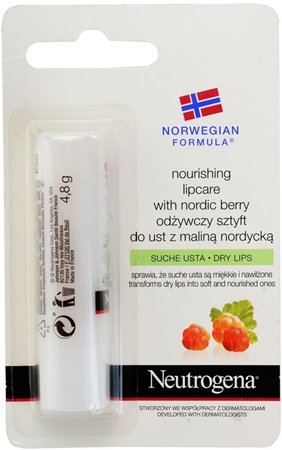
Closing Thoughts
Neutrogena Nordic Berry Lip Balm transcends ordinary lip care to deliver an unparalleled experience. Blending the nourishing essence of Nordic berries with dermatologist-approved science, it offers year-round hydration, protection, and repair. For anyone seeking soft, healthy lips, this balm stands unrivaled in its category.
-
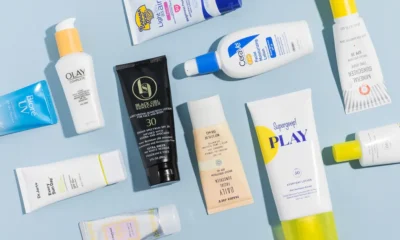
 Skin10 months ago
Skin10 months agoNatural Oil-Free Face Moisturizer Reviews & Buyers Guide
-
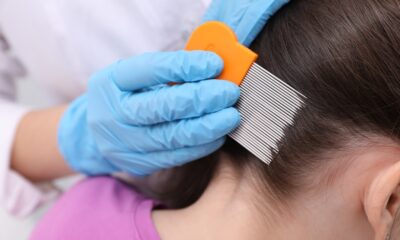
 Hair2 months ago
Hair2 months agoDoes a Flat Iron Kill Lice? Fact or Myth?
-
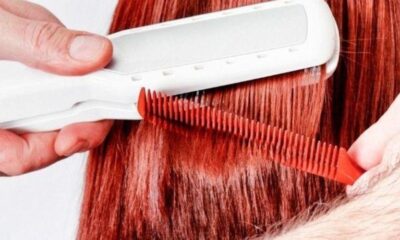
 Hair10 months ago
Hair10 months agoDoes a Flat Iron Kill Lice? Fact or Myth?
-
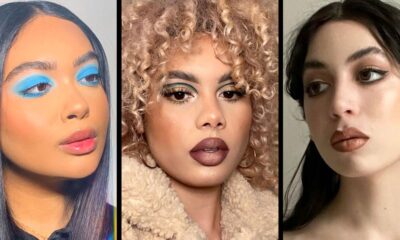
 Skin9 months ago
Skin9 months agoAbout Face Beauty: Tips for Enhancing Your Natural Beauty
-
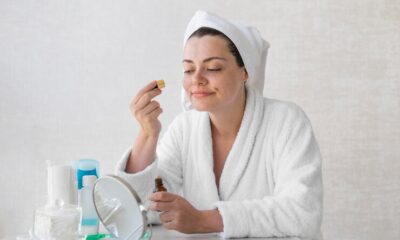
 Skin10 months ago
Skin10 months agoNeutrogena Naturals Multi-Vitamin Nourishing Face Moisturizer Review
-
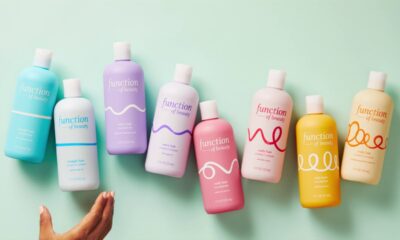
 Hair10 months ago
Hair10 months agoFunction of Beauty: Personalized Hair Care for Your Unique Needs
-
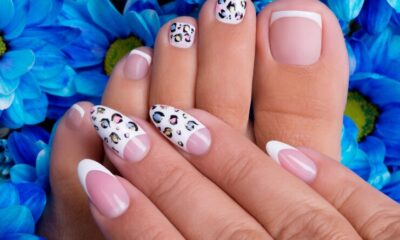
 Skin9 months ago
Skin9 months agoBeautiful Nails: Tips and Tricks for Healthy and Gorgeous Nails
-
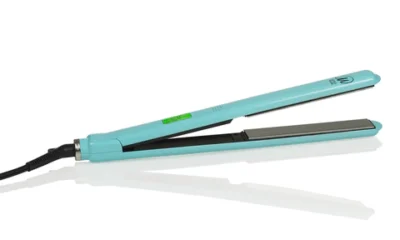
 Hair10 months ago
Hair10 months agoTitanium Flat Iron vs. Ceramic
